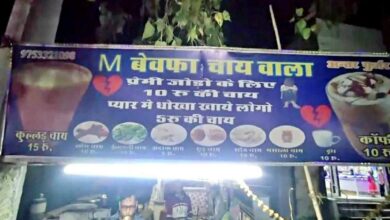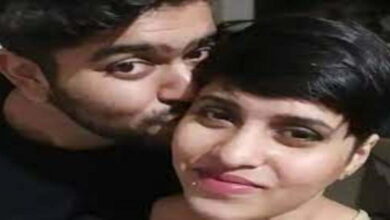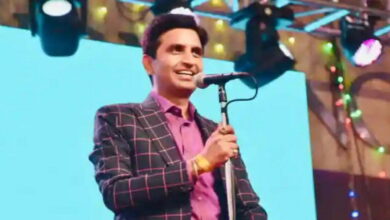Uniforms are changing, police are not improving!

On the initiative of the Union Home Ministry, a ‘Chintan Shivir’ of Home Ministers of all the states of the country was organized in Faridabad recently. In this two-day camp, there was a very good and serious discussion about the internal security of the country. The Home Ministers of many opposition states did not participate in this and the main reason for this was that in the states ruled by most of the opposition parties, the Chief Minister himself is the Home Minister. So they did not come but their state was also represented in it. All the states told about their own policing system and its limitations, shortcomings and requirements were also discussed. Among all these things, the thing that got the most attention was the concluding speech of Prime Minister Narendra Modi. In that too, the most discussed was that the Prime Minister suggested ‘One Nation, One Uniform’ i.e. ‘One Nation, One Uniform’.
This matter was discussed for several days. In many newspapers, pictures of uniforms of policemen in different states were printed and compared to bring uniformity in them. However, the Prime Minister offered it as a suggestion. He said that the law and order issue is in the state list as per the Constitution, yet policing is also a matter of national security in a broader sense. He also said that it may take five, 10 or even a hundred years, but it should happen. The result of this statement was that all the discussion in favor and against it continued. Opposition parties as well as security experts raised questions on this and it was said that it is against the spirit of federalism. It was also said that the Prime Minister has made a trend. They talk of ‘One Nation, One Everything’ and it is against federal spirit. The discussion should have been on how to coordinate the police of all the states, how to coordinate the police and central agencies of the states and how to implement police reforms, but instead the discussion started on uniforms. It is a misfortune that every serious discussion in India turns to something so light or superficial.
The Prime Minister himself said that there should be coordination between all the security forces so that the exchange of information is easy, so that crime is reduced and criminals can be punished quickly. But it was not discussed. Nowadays interstate crime has increased a lot. Along with this, there has also been a huge increase in cybercrime. The scope of cyber crime also spreads in many states. Like cyber thugs sitting in Jamtara, Jharkhand are duping people in every part of the country and even abroad. It is not the job of Jharkhand Police alone to stop or deal with it. The network of terrorist or extremist organizations, whether domestic or foreign, is also spread across the country. Therefore, there should be a common system of police of the states across the country so that inter-state and cyber crimes and terrorist incidents are stopped and criminals are punished at the earliest.
Apart from this, the thing that should have been talked about most seriously was police reforms. Even the Prime Minister did not talk about it. The way he talked about ‘one nation, one uniform’, all the states should have been asked to implement police reforms in their own right. 16 years ago, the Supreme Court had given an important decision regarding police reforms. In September 2006, the Supreme Court ordered all states to implement police reforms. In this order some clear instructions were given by the Supreme Court. Unfortunately, no state in the country has implemented these instructions. These directions of the Supreme Court should have been discussed in the Chintan Shivir of Home Ministers across the country and a time limit should have been fixed for their implementation. This will also improve the image of the police, which the Prime Minister mentioned, and the quality of its work. The allegations of the police being used as a weapon of political masters would also have ended.
The Supreme Court had suggested setting up of a State Security Commission with the Chief Minister or Home Minister of the state as its chairman. Apart from him, the Leader of the Opposition, a retired High Court judge and some important non-political people should be made its members. This commission should oversee the working of the police and ensure that the police is not working according to the ruling party. Such a commission has not been made in any state. The Supreme Court had directed the setting up of a Police Establishment Board consisting of the Director General of Police and four senior police officers of the state and transfer and posting of officers of the rank of DSP. Similarly, the court had also suggested setting up of a board to hear police complaints, with retired judges at the state and district levels as the chairman. This board should hear and investigate complaints of incidents like custodial death or rape. Apart from this, the court had also asked for a system of appointment of state police chiefs on the basis of merit.
In fact, police reforms and police training are the biggest need of the hour. Police acts as an interface between the government and the society. Therefore, his image should be very good in the minds of the people. It should not happen that common citizens get scared after seeing khaki uniform, as it is the case in India now. People should consider the police as their friend, this is the first need. It is also to be noted that objective investigation of crime, interrogation of accused, forensic investigation, etc., are all things of scientific training. But in India it is not considered necessary. In developed countries around the world, the police are divided into several parts. The law and order police are different and the crime investigation police are different. Not only this, the police handling the court cases is different. That is, there are separate police for Law and Order, Investigation and Prosecution. But in India only one police do all the work. The one who has caught the criminal, he does the investigation and he goes to the trial of the cases. It needs to be changed. This change will happen only when there is a fresh reinstatement in the police and they will have better training. After this they need modern weapons and equipment. Today the way of crime has changed. Criminals are using technology. To stop them, the police will also have to be equally technically efficient and capable.






